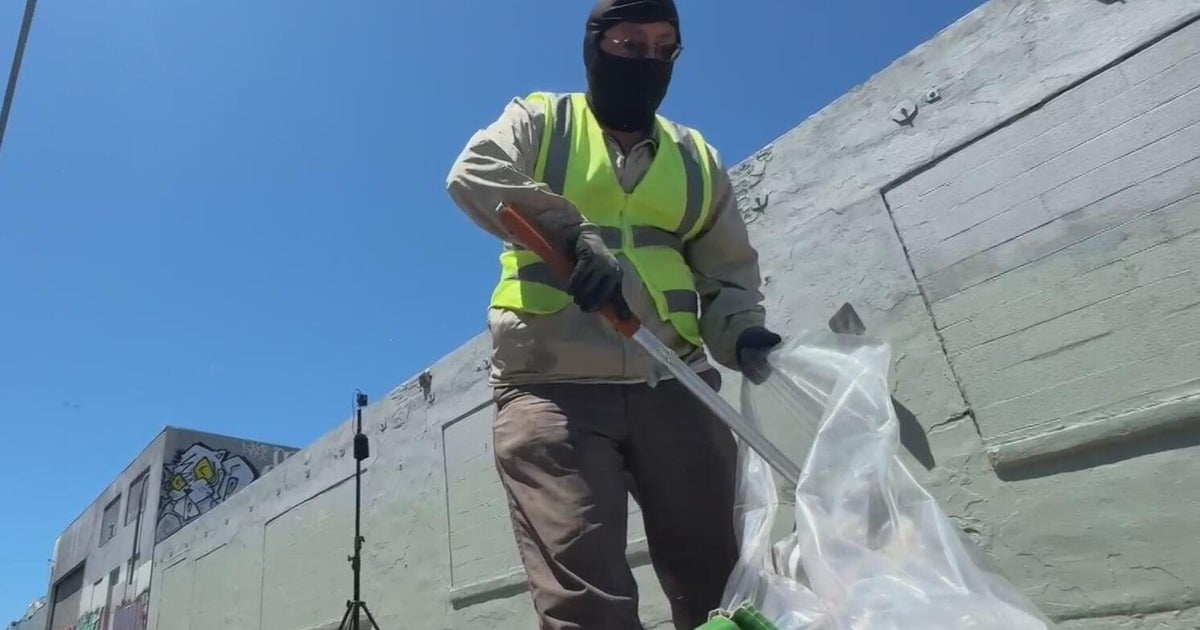'Cyber Attack' On California Common Core Testing Shuts Down Access For Hours, State Denies Deliberate Tampering
OAKLAND (KPIX 5) -- What appears to be a denial of service cyber attack may be responsible for preventing hundreds of thousands of students statewide from logging in and taking the Common Core computerized tests Thursday, according to Oakland Unified School District.
"It was a deliberate attack. Not just a malfunction," Troy Flint with Oakland schools told KPIX 5.
Frustrated teachers across California lost hours of valuable classroom instruction time unsuccessfully trying to get students logged on to begin the mandatory tests.
Johanna Paraiso, Common Core Testing Coordinator for Fremont High said, "It just kind of throws a wrench in the whole thing. We want to be able to give our kids assessments that matter. And then to not have the kind of support we needed, it kind of kicks you when you're down."
Paraiso said it's much more than just an inconvenience, adding, "It's not just the days of the test. It's the before and the aftermath that's also affecting their learning. So I feel like we just lost two weeks."
Lost time for something that may have been a malicious disruption.
"As far as we know, it was intentional," Flint added. "The state was subjected to some sort of attack and that's what caused the system to bog down."
He adds that the state told his district the issue was sabotage on the school server system, although it's not clear which server system may have been affected.
At the same time, the state department of education says those reports are unfounded.
Bill Ainsworth with the California Department of Education called the glitch minor, "The bottom line is the testing is going very smoothly in California."
Giorgos Kazanis who works with Ainsworth at the Department of Education told KPIX 5, "The system was in the process of an upgrade and was coming back online at the time when students were attempting to log onto the system."
Regarding reports of a "denial of service" attack in which hackers program servers to send continuous log-on attempts, preventing legitimate users from logging in, he said, "While [the software update] did cause a delay, they [Educational Testing Service] say this was not a cyber-attack."
Ainsworth agreed that based on what the test vendor reported, "It wasn't caused by a slow internet connection or a lack of server space. It was caused by a software update."
The California Assessment of Student Performance and Progress (CAASPP) confirmed at least one issue on its website Thursday, alerting that, "We received reports of delays logging on to the test delivery system." The system later reported that normal functionality had been restored, but it's not clear how many students were affected and how much instruction time was lost because of the malfunction.
California's testing vendor is Educational Testing Service or ETS. The vendor has not responded to a phone call and email looking for more background on what happened.
The state reports its record so far is 311,489 simultaneous test takers on April 28, and the system can theoretically handle up to half a million tests.
Whether it was a cyber attack or just a poorly timed software update, students were the ones hurt.
Paraiso said, "I don't know what to make of it. Either way, it is frustrating. And I wish that all the kinks could've been worked out so that we wouldn't have to get a message like that."
At least 22 states have reported other issues with delays according to news reports catalogued on FairTest.org.
In the new testing process, 1.6 million California students in grades 3-8 and 11 are often pulled from their classrooms and moved into computer labs where they can sit in front of a monitor to begin the mandatory testing. Teachers on Thursday found they were unable to get students logged on, and faced delays of two hours just waiting to begin the tests.
In addition to needing to log onto a third party testing system, the school sites themselves need to have enough bandwidth on their Local Area Networks (LAN) and WiFi networks for the simultaneously increased data load, something made more complex by aging school networks and complex switches routed through district offices.
Facing similar but far more lengthy and continuing problems in Las Vegas, Clark County school administrators have suspended testing with their test administration vendor for multiple days because of lack of server capacity. The superintendent is now declaring the issue a breach of contract by testing companies Measured Progress and Smarter Balanced for failing to deliver what they were paid to do.
Measured Progress does not handle testing in California.
As with the California glitch, Nevada students were unable to log onto the test system.
Superintendent Dale Erquiaga released a statement to the Las Vegas Sun saying, "It is clear that Nevada's testing vendors have failed to uphold their obligations. Today more than 10,000 students appear to have successfully participated in the testing, but the success is attributable only to the fact that Clark County School District had suspended testing. The system clearly cannot handle the full extent of our student population."
The Las Vegas district may be considering legal action.
Measured Progress released a statement saying they, "...made numerous improvements to the online delivery platform in recent weeks. In particular, our recent modifications to the server structure, and our deployment of the updated system based on the code we received from the Smarter Balanced vendor, have resulted in continued successful assessment completion in Montana and North Dakota this week. Students who logged in were not disrupted, and no saved data or responses were lost."
The company is working with Nevada now to implement similar solutions.
Smarter Balanced also reports on its website that it works with California testing, with 7 million students grades 3 through 8, and 11th grade taking the Smarter Balanced exams in English and math across 18 states.
Common Core has received significant criticism in more conservative states. In California, 69 percent are in favor of the new standards after being read a brief description, and 22 percent opposed according to an April Public Policy Institute of California survey.



